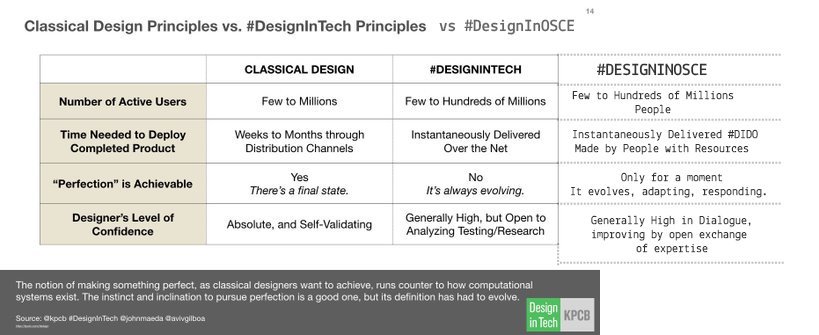Meta: Discussion was part of the development of an OSCEdays Organisation.
Hi,
For the development of the future of OSCEdays a clear definition of Circular Economy is needed. Below are drafts. Let’s discuss and develop them in this thread further. Are all aspects covered?

°
Definition CE – Version 0.3
(Entire new take - explained here)
In a Circular Economy, systems are designed to provide the potential for as many other systems as possible to grow – in the short and long term (biological, social and technical systems).
To reach this goal, the Circular Economy favors and explores concepts, techniques and strategies like:
- circular flows of resources, products and processes;
- fair and free environments for people to live and work;
- local and short feedback loops;
- use of standards;
- use of (non-toxic, clean, nourishing and healthy) materials that are either technically recyclable or biodegrade;
- products and processes designed for
- durability,
- compatibility,
- upgradability,
- adaptability,
- maintenance and repair and
- dis- and reassembly,
- (also high value);
- (Low carbon and low entropy approaches;)
- open source collaboration (or transparency).
°
Definition CE - Draft Vs 0.1
UPDATED Vs 0.2 | | UPDATED Vs 0.3
Circular Economy is an approach to the design of objects [1.], systems and collaboration between individuals and organisations that wants to build a really (socially [2.], ecologically and economically) sustainable economy.
In a Circular Economy materials return after the life-cycle of a product back to another production cycle. It focuses on regenerability. There is no waste or unwanted byproducts, everything is made in a way that it can feed other production processes, infinitely [3.].
The Circular Economy avoids the consumption of non-renewable scarce resources [4.] and aims to preserve a rich, healthy and productive biosphere [5.].
Therefore the Circular Economy favours Durability, Standardization and the Use of Standards, Compatibility, Upgradability and Adaptability, Ease of Maintenance and Repair and Readiness for Dis- and Reassembly of Products and Parts and Materials that are Recyclable or Biodegradable [6.].
_
°
(And once a CE definition is done we can just add something like the following and have definition for OSCE:
“The Open Source Circular Economy does all that by applying the principles of OS to it that are …”)
REMARKS:
[1.]
“Products” instead of “objects” would be of course easier to understand/less vague. But it comes with a certain notion of economy. Did a blacksmith in the middle ages provide “products”? “Objects” is more open and flexible, philosophically. But it makes also the first sentence harder to grasp … And I use “products” later in the definition anyway. Another way could be to replace it in general with “artefacts”? But this might be to abstract and philosophical.
[2.]
We wanted to add, that it is about people. Could this be the way to do it?
[3.]
I was thinking about bringing in the technical and biological cycles. But could not find an elegant way to do it yet. Question is: Is it really needed? I think those concepts would need explanation also. The Ellen MacArthur Foundations definition just says: “Distinguishing between technical and biological cycles.“ Without any comment. I am not sure if this works very good. -> Update: I might have found a solution, see point [6] below
[4.]
We wanted to integrate: “a systems thinking approach within a circular economy beyond the status quo of resource efficiency to include over-consumption, externalities, rebound effects.” Which is good I think. Could the version above be the way to cover this? Maybe it is a bit vague. But somehow and underlying concept of “over-consumption, externalities & rebound effects”. Adding “over-consumption, externalities & rebound effects” as words to the definition is not a good idea I think. They are heavy words and heavy and not intuitive concepts. Either we would have to explain them, which would make the definition way to long and complicated or we would have to add them unexplained which would make the definition hard to understand and to connect to for most people.
[5.]
Or should it say “environment” instead of “biosphere”.
[6.]
It would be possible to make the last bit longer and cover the two cycles here: “recyclable through technical processes or biodegrade in the biosphere without harming it.” I think, this might be good.
ping @sharmarval @TechnicalNature @cameralibre @unteem @keikreutler @hazem @Alice_audrey @Ina @sophia @transitionmica @Chris @lauren @RicardoR @Gien @Silvia (+ you, feel invited to join the task)
btw. if you are looking for a practical video, here is one:


 literally kinda blah tbd
literally kinda blah tbd